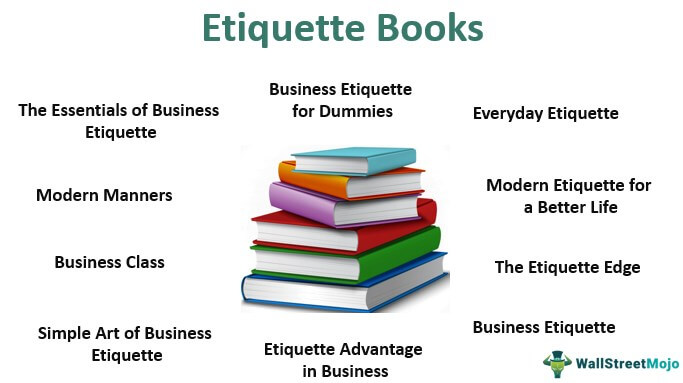There are many different nuances in business etiquette. For instance, in the United States, it is normal to dive right into business, whereas in Colombia, diving right into a business is considered rude and can hurt your business relationships. Developing good business etiquette early on is vital to a successful business relationship.
Business Etiquette
When you’re in the workforce, you need to know how to develop good business etiquette. In a business environment, the way you treat people can greatly impact your career. In addition to common courtesy, business etiquette also involves considering the feelings and needs of others. In addition, good business etiquette also extends to digital communication, such as emails.
Good business etiquette can help you build a positive and productive working environment. It will allow you to put aside your differences and support the organization as a whole. You can also be confident in yourself and be sensitive to the feelings and opinions of others. In addition, good business etiquette can make you look professional and promote a positive image of your organization.
A business cannot function without proper communication. This is essential to working as a team and accomplishing the goals. Good communication prevents mistakes due to miscommunication, sabotage, or malicious compliance. This is why business etiquette is crucial to a collaborative work environment.
As a B2B company, it is important to give a good impression to potential customers. This starts with the way your representatives dress, make eye contact, and hand out business cards. Developing good business etiquette will establish a good impression of competence and success in the eyes of the customer.
If you work in an open office, it is important to be aware of your colleagues’ needs. This means that you should consider your volume, especially when speaking to other people. Remember that around 15% of the adult population has some sort of hearing impairment, so you need to take extra care to reduce the volume of your voice when talking to people. This will help you avoid a hostile working environment and develop good customer relations.
Modern technology has changed the way business people communicate. The use of cell phones, for example, has led to a debate about how employees should use them. Email etiquette requires clear communication, including confirming receipt of messages. The use of social media has also posed new challenges. It’s important to consider what you’re posting online and not to post anything negative about your employer or employees.
Personal space
In an open office environment, it is important to respect others’ personal space. This allows people to collect their thoughts and work more productively. But carving out personal space isn’t always easy. You need to establish boundaries and rules that keep your work and personal space separate. This will help you avoid encroaching on someone’s space and snooping around.
A good guideline is to keep personal space between one and four feet. In general, this is the best rule of thumb for building relationships. But you can also use it to manage your behavior around others. Keeping personal space is an important part of any relationship. If you are not sure when and where to use it, here are some tips:
Personal space can also refer to an invisible barrier around you. Whether you are talking with someone, or just standing next to someone else, personal space is an important boundary to respect. Invading someone else’s personal space means getting too close and can make them uncomfortable.
There are certain situations where you may want to get closer to someone. You can do this during business negotiations or when meeting new networking partners. However, you need to keep in mind that standing too close or too far can cause an emotional disconnect. Remember the example of the President of the United States Bill Clinton who was questioned by a stranger standing further out in the audience.
Personal space can be a challenge, but it is a vital social skill. Developing this skill will not only help your child interact with others, but it will also keep them safe. Younger children need extra help learning this skill. They may be unable to understand why people might be uncomfortable.
Interrupting others
There are some general rules to follow when interrupting others. First, don’t interrupt others in the middle of their sentence. It appears rude. Second, make sure your interruption is relevant to the person who is talking. If you’re going to interrupt someone, consider asking a question.
People interrupt for many different reasons. Some people do it to show that they’re listening intently, others to correct a fact, or simply to share an idea. While some interruptions are unwelcome, others are completely appropriate. Regardless of the reason, it’s important to be considerate when interrupting others.
Remember that people want to be heard and need to feel appreciated. Constantly interrupting them will erode relationships and show that you are self-centered and insensitive. It will also make people feel ignored and irrelevant. Besides, interrupting others can be a sign of anger or frustration.
The best way to deal with interrupters is to be aware of their behavior and try to avoid it. It’s hard to change an old habit, but it can be done. For example, you could make a note of the time at which you interrupt and explain how your interruption is affecting the other party.
It’s also important to remember that an interruption is only impolite if you are attempting to change the topic of the conversation. Instead of interrupting, try to connect with the person. You can do so by asking them to elaborate or clarify what they’ve said.
If you are frequently interrupted, it’s important to learn proper ways of interrupting others. First, you should ask the person if they’re comfortable with you interrupting. Then, explain why you’re interrupting them. Otherwise, they’ll become annoyed with you and continue interrupting.
Modeling good manners in children
Modeling good manners in children is an important part of parenting. Children learn best through imitation and direction, so parents should strive to demonstrate desired behavior and be respectful role models. There are many fun ways to model good behavior with your children. Using stuffed animals, dolls, and other toys as props, for example, will help you role-play situations with your child.
Modeling good manners in children is also important for social capital development. Teaching children to say please and thank you, and to apologize for their actions, is essential to building social capital. Children who are kind to others will be more likely to make friends, whereas children who push and demand do not.
Modeling good manners in children includes using appropriate language and dressing for the occasion. It is a good idea to practice manners at every opportunity, whether at home or at a friend’s home. For example, it is rude to wear leggings or jeans to a wedding. Likewise, children must have table manners. Practice table manners at home and while eating out.
Even though no one is born with a perfect sense of etiquette, it is important to begin teaching good manners from an early age. Children are especially susceptible to the influence of social customs, so it is important to model good manners and etiquette from a young age. As a parent, you should always remember that children do not understand the formal rules of etiquette, and they need guidance.
Modeling good manners is the most effective way to instill good manners in your child. Children are always repeating what they see, so modeling your own behavior is extremely important. When speaking to your children, use phrases such as “please” and “thank you” to show them the appropriate way to respond to you and others. When your child sees you modeling good manners, he will follow suit. By modeling good manners at home, you will increase your child’s confidence and self-esteem.
Modeling good manners in children also helps your child feel responsible for others. By being polite, children learn that they can respect their elders and take care of their own responsibilities. Instilling good manners early in a child’s life will help them avoid embarrassing situations later.



